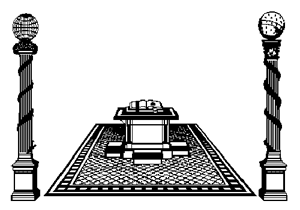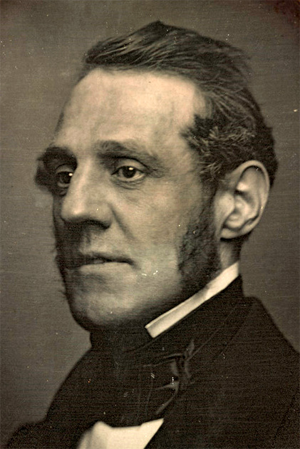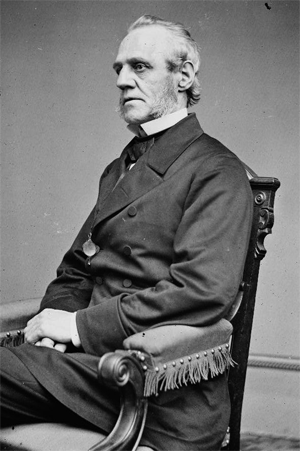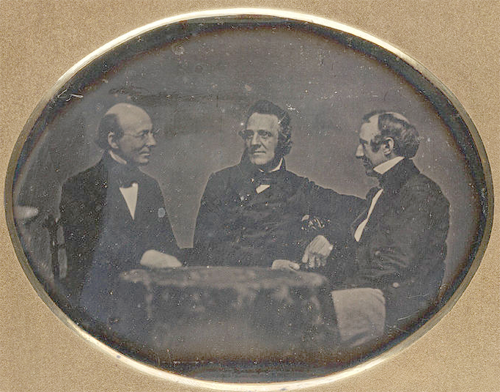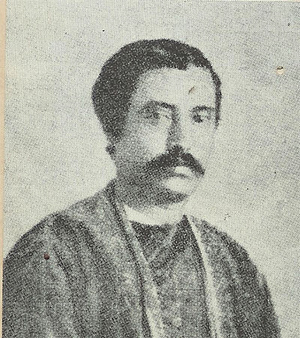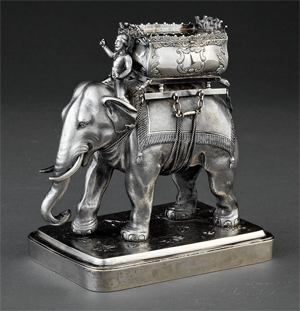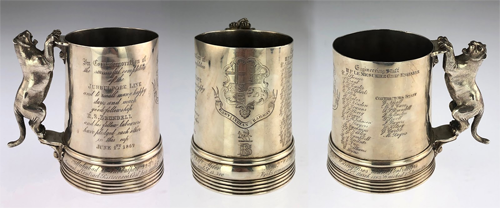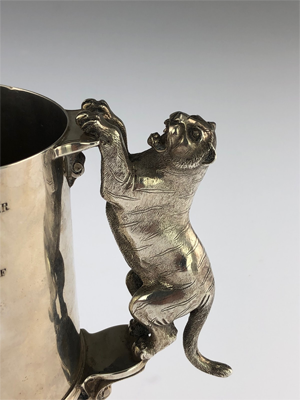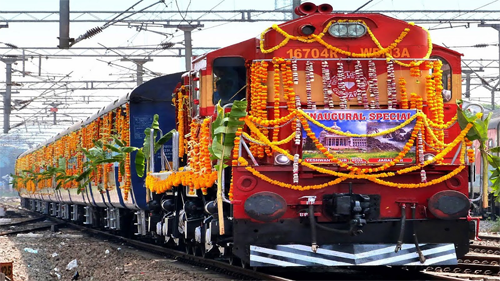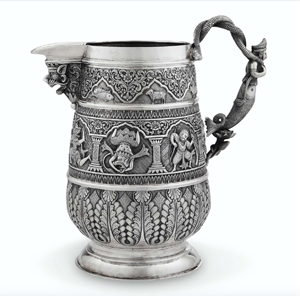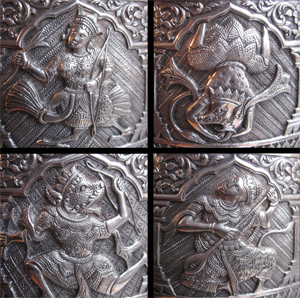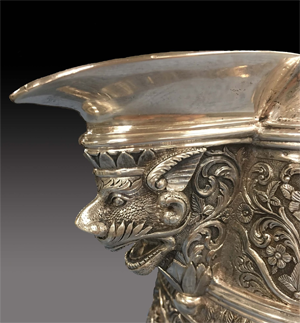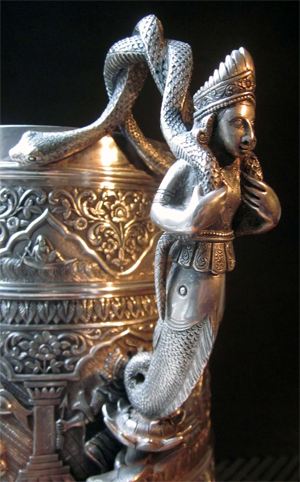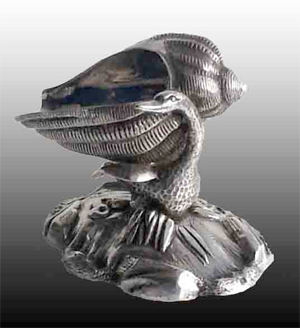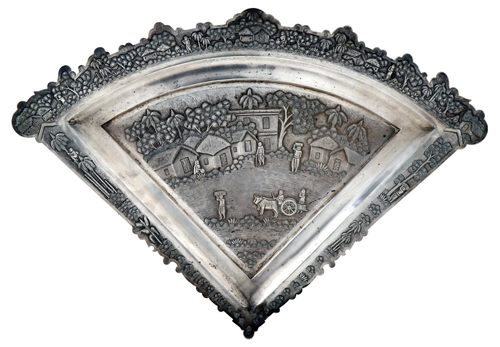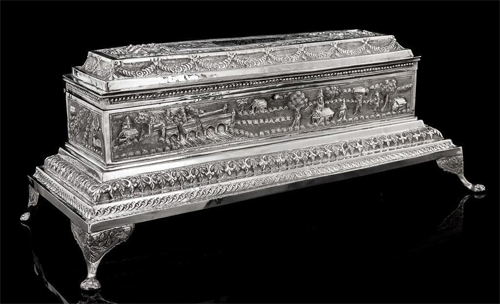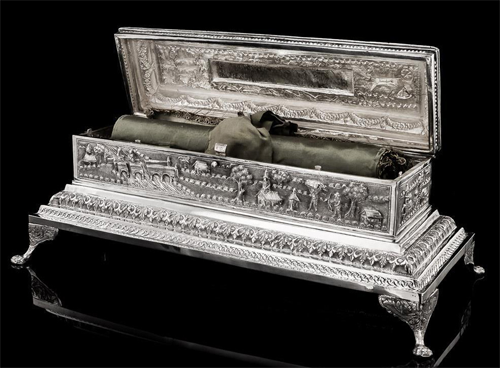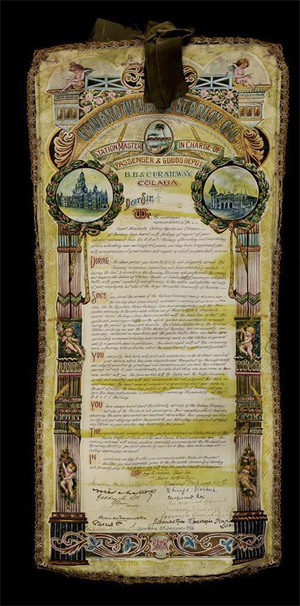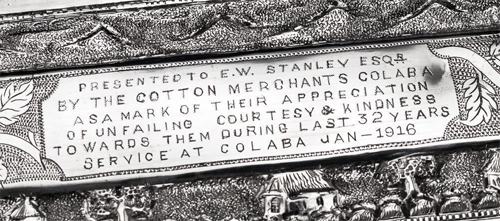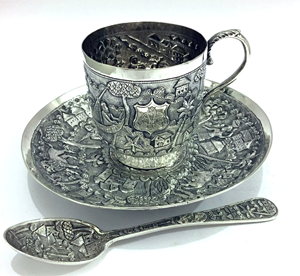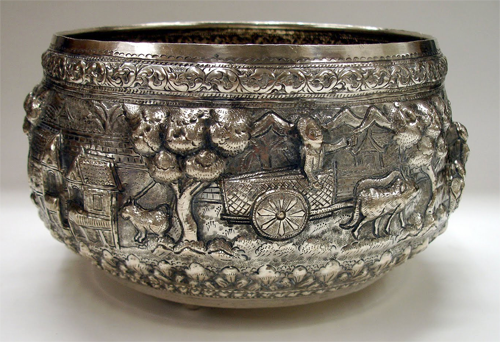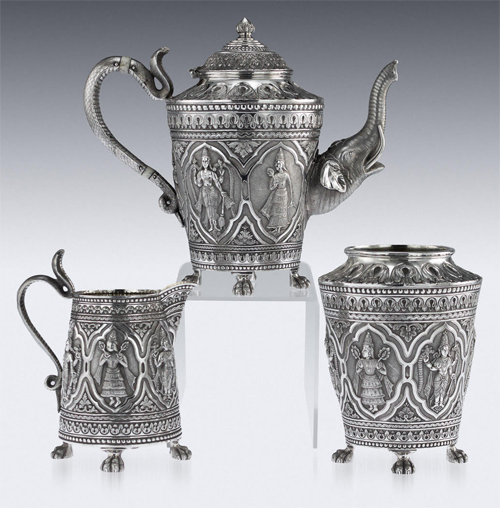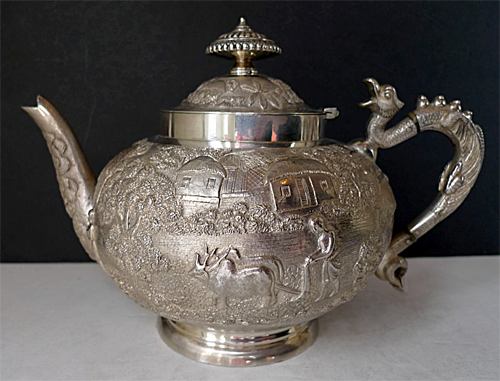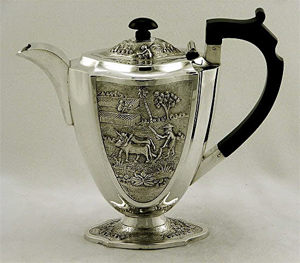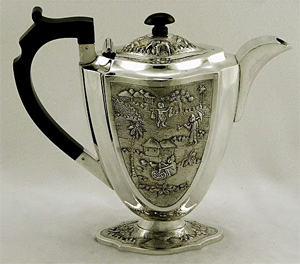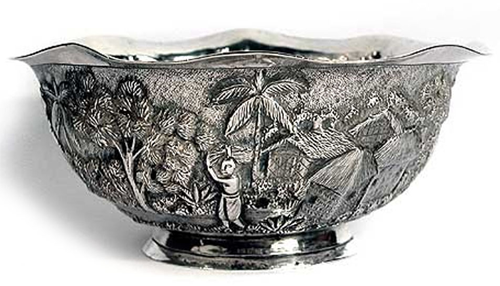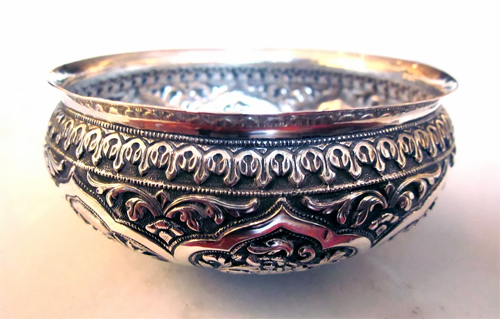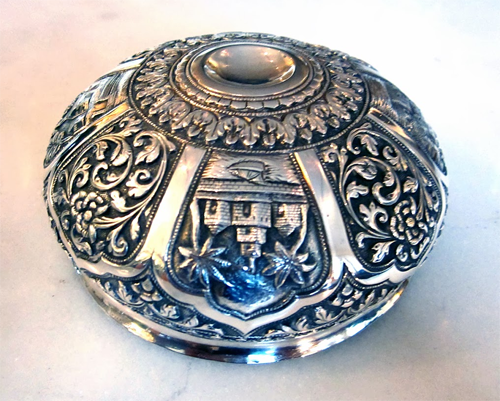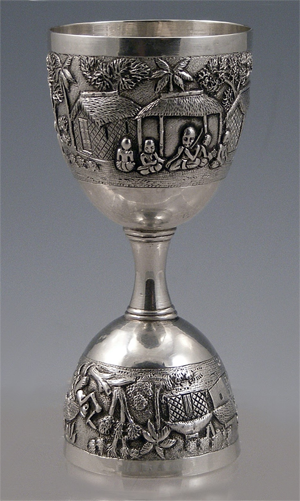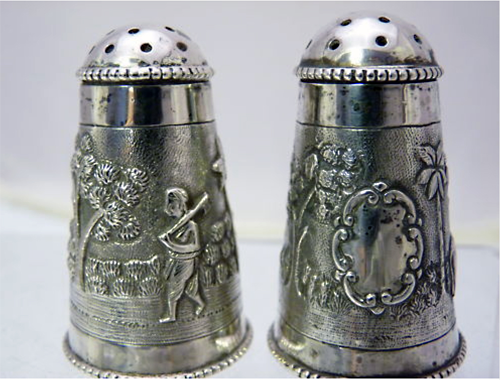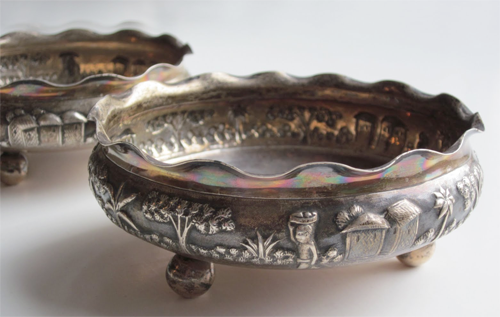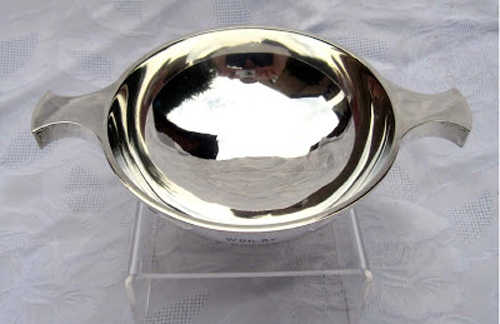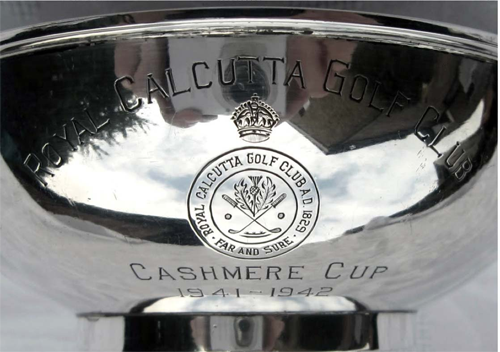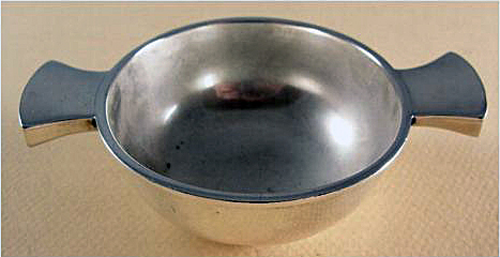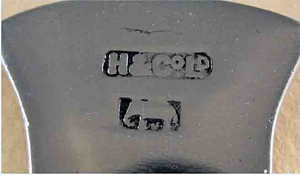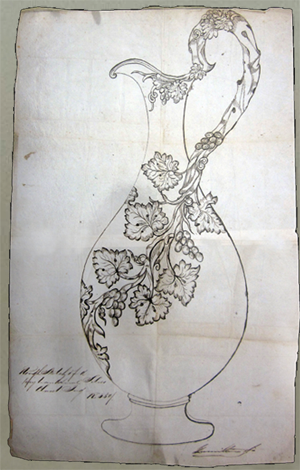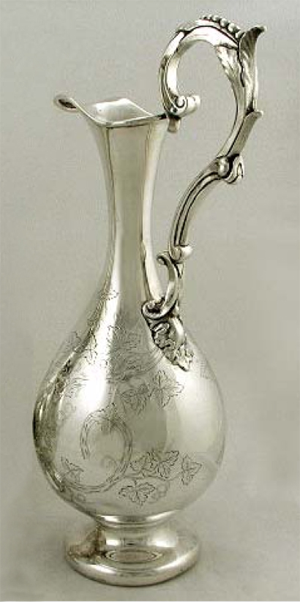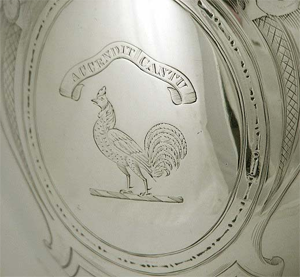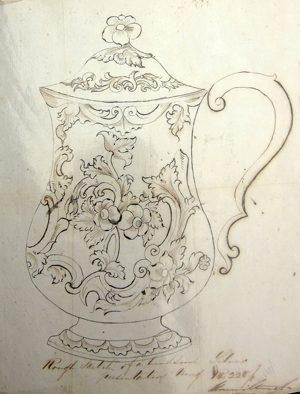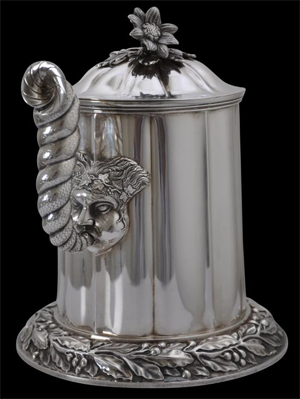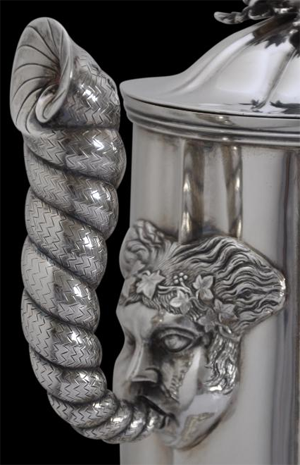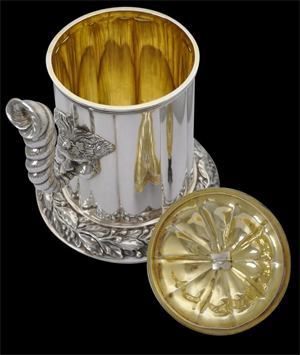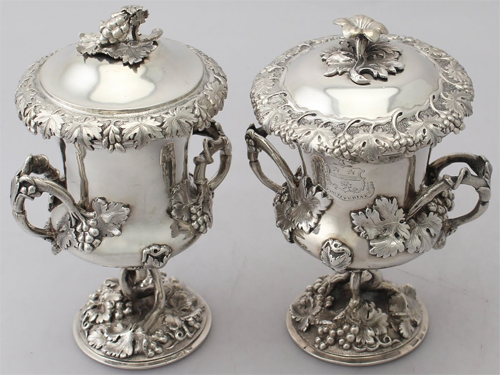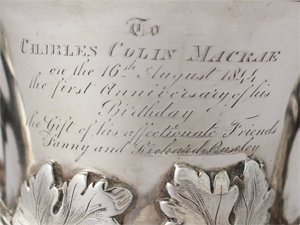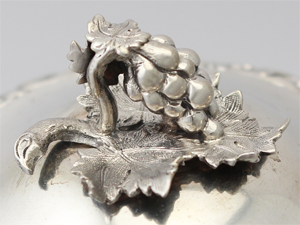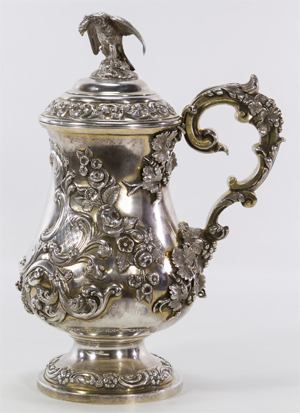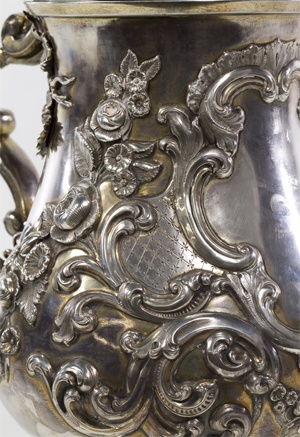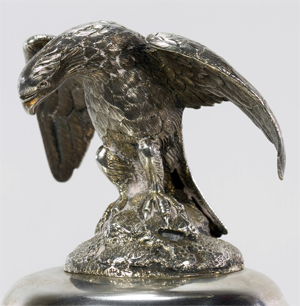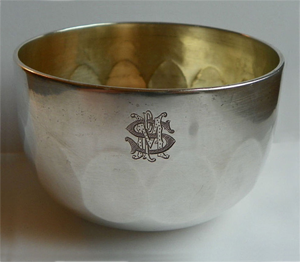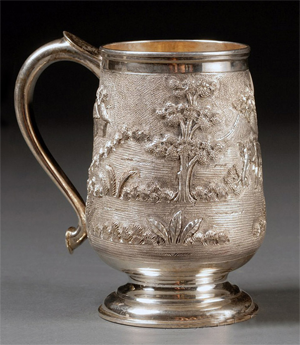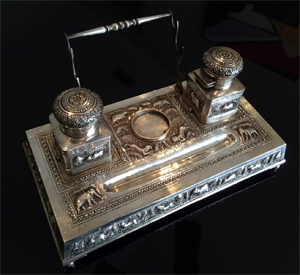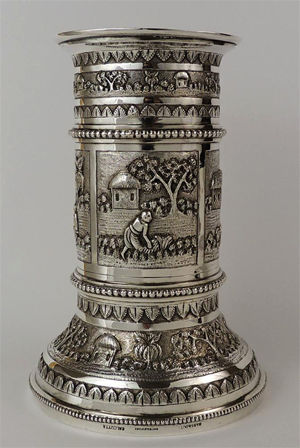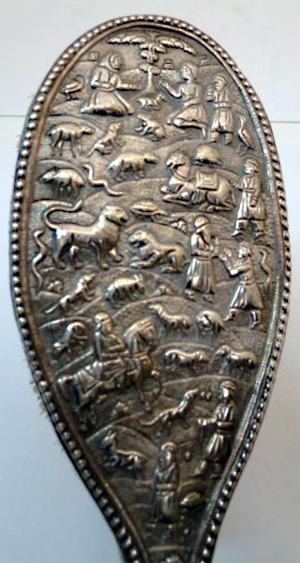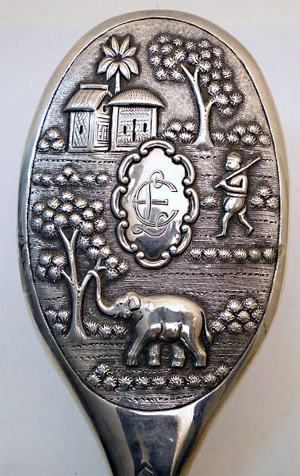The Grand Lodge of AF & AM of India
by The Grand Lodge of AF & AM of India
Accessed 2/17/20
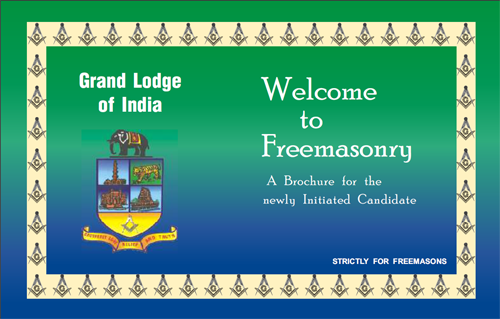
Grand Lodge of India
Welcome to Freemasonry
A Brochure for the newly Initiated Candidate
STRICTLY FOR FREEMASONS
Presented to:
Bro.
On the Occasion of his Initiation into Freemasonry in
Lodge
On
Junior Warden; Senior Warden; Worshipful Master
Welcome to Freemasonry
On behalf of Most Worshipful the Grand Master of the Grand Lodge of Free and Accepted Masons of India, we welcome you to the Masonic Fraternity and congratulate you on joining our ancient and honourable institution. Ancient undoubtedly it is, having existed from times immemorial and as you were told during the ceremony of your initiation, honourable it must be acknowledged to be, since it makes all those so, who follow its precepts. We are all the more encouraged to welcome you in our midst because, you freely and voluntarily offered yourself as a candidate for the privileges of Freemasonry and also asserted that you did so, unbiased by improper solicitations from friends against your own inclinations and uninfluenced by mercenary, or other unworthy motives. You also assured us that you were prompted to seek those privileges, by a favourable opinion of the Institution, a desire for knowledge and a sincere wish to be more extensively serviceable to your fellowmen.
About Freemasonry
You must have gathered some information about Freemasonry, from your Proposer and Seconder. You will also no doubt learn more about Freemasonry, as you get more exposure to it. In the meanwhile, this brochure is intended to acquaint you with what Freemasonry is and what Freemasons stand for.
By way of introduction the following general observations about Freemasonry will enable you to further discover Freemasonry. This information is also available in the form of a handy folded card entitled “Discover Freemasonry” which you can collect from the Secretary of your Lodge, for being passed on to any non – Freemason, who enquires from you, details about Freemasonry.
Freemasonry is
• One of world’s largest and oldest secular fraternal organization
• A world–wide organization based on the principle of the Fatherhood of God and the Brotherhood of Man
• Committed to its universal motto of “Brotherly Love, Relief and Truth”
• A unique society of men concerned with moral and spiritual values
• Involved in making good men better and thereby making the world a better place to live
• Engaged in teaching its precepts through a series of rituals and symbolism, by using stone masons’ tools and customs as allegorical guides
Freemasonry is
• Not a religion; it however, teaches respect and tolerance for all religions and a belief in a Supreme Being, without reference to any religion
• Not a political party or organization
• Not a secret society; however, the mode of recognition amongst Freemasons, are kept secret like the Passwords etc in wide use among internet and credit card users, to prevent frauds and misuse
• Not a social club; its membership consists of a cross section of society, who meet on an equal footing; it also involves family members on social occasions
Freemasonry encourages
• Charity as the predominant Characteristic of every Freemason’s heart
• The moral virtues of Temperance, Fortitude, Prudence and Justice
• Extending fellowship and providing relief to those in distress
Brief History
• Freemasonry traces its origin from King Solomon’s times, but its real origin is lost in antiquity
• Freemasonry in its present form originated in England, in 1717; it came to India, at Calcutta in 1729
• Freemasonry exists in over 190 countries in the World
• There are over 5 million Freemasons in the world; in India we have about 20,000 Freemasons
• There are as on date, 380 Lodges in 143 locations all over India, which are the basic units for membership
• Prominent Indian Freemasons include Swami Vivekananda, Moti Lal Nehru C. Rajagopalachary, Dr. Rajendra Prasad, Dr. Sarvepalli Radhakrishnan, Fakhrudhin Ali Ahmed, Actor Ashok Kumar, Mansur Ali Khan Pataudi etc., as also a wide variety of a cross section of society and professionals, such as Doctors, Engineers, Industrialists, Professors, Teachers Advocates, Chartered Accountants, Business Executives, Judges, Officers of various ranks belonging to Armed Forces, Civil Service Officers etc.
How to Join Freemasonry?
• Freemasonry does not solicit or canvass for membership
• Those above 21 years of age and who believe in God, as a Supreme Being can join
• One has to be proposed and seconded by a Freemason to join a Lodge which is the basic unit for admission of membership
• Every candidate to Freemasonry is invited to interact with a screening committee of the Lodge which he proposes to join before he is balloted for initiation
For further details about Freemasonry you can visit our website: http://www.masonindia.org or send E –mail to [email protected]
Organisational Set-up
Before we take you on a retrospect of the ceremony of your initiation, it is desirable that you must know about our organizational set up. Freemasonry all over the world is governed in each country, by a body called the Grand Lodge of Ancient Free and Accepted Masons -- Grand Lodge for short. The head of that body is called the Grand Master who is respectfully called and addressed as Most Worshipful (M.W.) the Grand Master.
As you were informed earlier, Freemasonry in its present form had its origin in England in 1717 and that it came to India in 1729. You have also been told that the Lodge is the basic unit of Freemasonry. The first such Lodge came into being in India at Calcutta. In due course several such Lodges were set up in different parts of the country. These Lodges functioned under the Grand Lodges of England, Scotland and Ireland. When we became independent in 1947 and later became a republic in 1956, need was felt for forming our own Grand Lodge. Eventually after finalizing and working out the various details, it was decided in 1961 to establish a Grand Lodge of India. By then, as many as 270 Lodges had been set up in the country. An option was given to these Lodges, to either continue to remain under the respective Grand Lodges of England, Scotland or Ireland, or to come over to the Grand Lodge of India. On a majority of 145 Lodges opting to come over to the Grand Lodge of India, the representatives of the three parent Grand Lodges of England, Scotland newly Initiated and Ireland, got together and formally consecrated the Grand Lodge of India, as a Candidate Sovereign Grand Lodge, over the territory of India, on 25th November 1961, at the Convention Hall of Ashoka Hotel, Delhi, in a colourful and glittering ceremony. M.W. Bro. Sir Syed Raza Ali Khan, the Nawab of Rampur, was installed as the first Grand Master of the Grand Lodge of India. A Book of Constitutions of the Grand Lodge of India was also adopted. The 145 Lodges which opted to join the Grand Lodge of India are called Foundation Lodges and as a token of their contribution to the formation of the Grand Lodge of India, each such Lodge was presented a Foundation Lodge Jewel by M.W. the First Grand Master. This jewel is presented to the incoming Worshipful Master of each such Foundation Lodge on the occasion of his installation. In case you are a member of such a Lodge we would like you to pay particular attention to its presentation on the occasion of the next Installation Meeting of your Lodge.
In the last over 47 years since then, several Lodges were added to the original 145 Lodges, and as of date, the number of Lodges stands at 360, in 142 locations, in different parts of the country. The headquarters of the Grand Lodge of India is Delhi. M.W. the Grand Master who is the head of the organization for the country as a whole, is elected by an Electoral College and has a tenure of three years. For better administration of these Lodges, the country has been divided into four Regions viz. North, East, West and South, each headed by a Regional Grand Master, located respectively at Delhi, Kolkatta, Chennai and Mumbai. The Head Quarters Office is headed by a Grand Secretary appointed by the Grand Master, to assist him in administering the Lodges and the Regions. At the Regional level, while the four Regional Grand Masters head the respective Regions, they are assisted by a Regional Grand Secretary in each Region.
This brochure has the Logo or the emblem of the Grand Lodge of India on its cover. You will observe that the emblem is in the form of a shield, which has been divided into four quarters. Each quarter represents a Region. The Northern Region is represented by the Qutab Minar, the Eastern Region by the Bengal Tiger, the Western by the Gateway of India and the Southern by the Temple Gopuram. The shades of colours on the cover page viz. Blue, Light Blue & Green which merge with each other are also significant. They represent the colours of the three Parent Grand Lodges of England, Scotland & Ireland which took part in the founding the Grand Lodge of India. The Square & Compasses on the border of the cover page & elsewhere in this brochure are the universal symbol of Freemasonry throughout the world. While the two points of the Compasses represent the limits of Good & Evil as prescribed by God within which we as Freemasons are always expected to act, the Square shows the square conduct expected of us as Freemasons while dealing with each other in society.
You may recall that your attention was drawn during the course of the ceremony of Initiation, to a Warrant issued by the Grand Lodge of India, which is the authority under which your Lodge and other such Lodges function all over the country. You might have noticed that the Lodge, which you have joined, has a number attached to it. Whenever there is a request for opening a Lodge, the members, who wish to found it, make a petition to the Grand Lodge, with the recommendations of the Regional Grand Master concerned and if the Grand Master approves the same, a Warrant for Consecrating such a Lodge is issued by the Grand Lodge, indicating the Serial Number of the new Lodge, on the Rolls of the Grand Lodge of India. Thereafter, the Lodge is Consecrated in an impressive Ceremony by M.W. the Grand Master. If you get an opportunity you may also become a Founding Member of a Lodge and witness the solemn and impressive manner in which a Lodge is founded.
A Recap of your Initiation
Coming now to a recap of your initiation, we would like you to recall the manner in which you were prepared for being initiated. The clothes you wore, were symbolic of your indigent circumstances and your being deprived of all valuables, was to depict you as ‘poor and penniless’, the significance of which was duly explained to you in the Charge that was given to you in the North East part of the Lodge which is appropriately called the 'Charity Charge'. You may remember that you were told that you represented the foundation stone of a new building. On this foundation you were expected 'to raise a super structure perfect in all parts'. The charity lecture also challenged "Have you anything to give in the cause of charity?" You were deliberately prevented from accepting the challenge, as you were deprived of all valuables prior to your entering the Lodge. It demonstrated that charity comes from the heart and is a way of life. It may take the form of your time, your energy, your friendship or financial assistance as your circumstances in life may permit. As for your being hoodwinked, it was intended to impress on you the need for being restored to the blessings of material light, to enable you to discover the three great though emblematical lights in Freemasonry, viz. the Volumes of the Sacred Law and the Square and the Compasses, the significance of each of which was explained to you. The traditional significance of the Cable Tow round your neck and your admission on the point of a sharp instrument were also explained to you.
Another significant aspect we would like you to recall is when soon after you were admitted, you were asked to kneel and the blessings of heaven were invoked, in a prayer on your behalf. Though you may not recall the actual wordings of the prayer, we had prayed on your behalf to God, whom we call the Great Architect of the Universe, to grant that you may so dedicate and devote your life to God’s service, so as to become a true and faithful brother amongst us. You may also recall that you were significantly asked, in all cases of dangers and difficulties in whom you put your trust and you were guided to reply that you put such trust in God. You were then informed that we were indeed glad that your faith was so well founded and that relying on such sure support, you may safely rise and follow your leader, with a firm but humble confidence, because, where the name of God is invoked, you will not face any dangers. This is symbolic of a fresh beginning of your journey through life from that moment onwards, as a Freemason, based on such faith in God and assisted by our Masonic principles. You have been admitted to what is known as Craft Masonry and have undergone the first of the three stages of that Degree, called the First Degree, or the Entered Apprentice Degree. You will soon be passed to the Second Degree, called the Fellow-craft, after you have proved your proficiency in the first degree, by answering certain questions and then raised to the third Degree, called the Master Mason, after you have shown similar proficiency in the second degree. These questions and answers will be given to you at the respective stages and it is expected that you come fully prepared with the answers at the time of your passing and raising. You may for this purpose take the assistance of your proposer/seconder and/or the Secretary of your Lodge.
The Working Tools of the first Degree, viz. the Twenty four inch gauge, the common gavel and the chisel were explained to you, indicating, how as Free and accepted or speculative Masons, we apply these tools to our morals. The other two degrees also have similar working tools, whose application to our morals, will be explained to you in due course. Together, these working tools symbolically lay down for you as a Freemason and for all Freemasons throughout the world, the principles and tenets of our conduct through life. On your completing the third degree and becoming a Master Mason, your attention will be called to a retrospect of the degrees through which you have passed, the better to enable you to distinguish and appreciate the connection of our whole system and the relative dependency of its several parts.
The ceremony of your Initiation, you may recall, ended with the Charge after Initiation, which is considered as one of the most beautiful portions of our Masonic Ritual. It explained to you the important duties, which as a Freemason, you owe to God, to your neighbour and to yourself. It pointed out your responsibilities as a Citizen of the world, as also the duty you owe to your own country. As an individual, it recommended that Prudence (meaning careful attitude) should direct you; Temperance (meaning exercise of self control) should chasten (correct) you; Fortitude (meaning moral strength and enduring courage) should support you and that Justice (fairness) should be the guide of all your actions. You were also reminded of the other excellences of Character namely Secrecy, Fidelity and Obedience. As a last general recommendation the Charge exhorted you to dedicate yourself to such pursuits as to enable you to be respectable in life, useful to mankind and an ornament to the Society of which you have become a member. On another occasion you will be told that whenever you are to decide on any offence -- a situation which may arise quite often in our daily life -- you should neither minimize it or exaggerate it, but should judge such offence with candour (meaning without any bias or reservation), admonish (meaning warn or scold) with friendship and reprehend (meaning censure or punish) with mercy. You will also be told on yet another occasion that to improve the morals and correct the manners of men in society must be your constant care. For this you will be advised that you are always to recommend to inferiors, obedience and submission; to equals courtesy and affability (friendliness) and to superiors kindness and condescension (respect). Thus between the lessons of the Working tools of the three degrees and the various principles and tenets of behaviour which are forcibly brought to your notice, Freemasonry chalks out for you a Way of Life and hopefully fulfill its objective of making the good man that you are, a better person.
Such dear brother, has been the high light of the ceremony of your Initiation and the object of Freemasonry and we do also hope that it has enabled you to appreciate the value of Freemasonry and further that the importance of Truth, Honour and Virtue have been indelibly imprinted in your heart.
Book of Rituals
You may be given a copy of the first Degree Ritual. It is strongly recommended that you go through it, so that you may be able to appreciate the process of your initiation. In due course when you see other candidates being initiated you will appreciate your own initiation much better. After you have become a Master Mason you will be given the full Book of Rituals, indicating the process by which candidates are initiated, passed and raised in the three degrees of Freemasonry. By familiarizing yourself with the Ritual, you can volunteer to do portions of it during initiation, passing and raising of Candidates and thereby be better able to understand and appreciate it. This Book of Rituals will serve you as a guide throughout your Masonic Career, as you progress in Freemasonry through various offices.
Your duties & obligations as a Member of the Lodge
The Members of the Lodge which you have now joined are now your brethren as indeed are all Freemasons throughout the world, without reference to Caste, Creed, Religion, Language, or the Country to which they belong. You are particularly requested to remember the Charge given to you when you were invested with the distinguishing badge of a Freemason, which though simple in appearance, was said to be more ancient than any other honour. The importance of love and harmony in the Lodge which should at all times characterize Freemasonry, was also emphasized by asking you to settle differences if any with any members amicably, outside the Lodge, so that the harmony within the Lodge is not disturbed.
Your Lodge meets on certain fixed days of the month, as specified in its Bye Laws, a copy of which was also given to you. You will be receiving notice of such meetings, by what are known as 'Summons'. You are expected to attend such meetings without fail, unless due to unavoidable circumstances of your public or private avocations, you are unable to do so, in which case you should communicate your apologies, through any brother, about your inability to attend the meeting. You are to observe proper decorum during the meetings and come appropriately dressed as per prescribed dress code and attend the Lodge in appropriate regalia. You are not to discuss religion or politics in your Lodge at any time. The Festive Board after the meeting is also so to say an extension of the meeting within the Lodge Temple and requires observance of proper etiquette and decorum, as also modest behaviour. If you are called upon to make a speech at the Festive Board, make it brief and interesting and to the point. In case of doubts and difficulties feel free to consult senior brethren of your Lodge. The meetings of the Lodge are conducted as per agenda as indicated in the summons. Policy aspects of the Lodge are discussed in a Permanent Committee of the Lodge, whose decisions as minuted, have to be approved in the Lodge, before they can be given effect to. At all regular meetings of a Lodge, a collection is made for Charity, where members make their contribution, according to their personal choice, the total of which is counted, announced and recorded in the minutes. It is also usual for Brethren to announce suitable amounts as their contribution to Charity on special occasions such as their own birth days, or the birth days of their near and dear ones. It is our tradition that all such contributions are thankfully received and faithfully applied.
Many Lodges involve the Ladies and family members in their outside the Lodge activities such as charity projects, etc. In many locations Ladies Association of the Members of the Lodge have also been formed to coordinate such activities. You may also find out details in this regard and involve your family in such activities.
Your progress in the Lodge
In due time, after you have become a Master Mason, you may, based on your seniority in the Lodge and regular attendance and the interest you take in the working of the Lodge, be appointed to various offices, in your Lodge, commencing from the Office of Inner Guard, which is the starting point in the ladder leading to the highest Office in the Lodge –- the Worshipful Master. The other Offices in the ladder as you ascend are, the Junior Deacon, the Senior Deacon, the Chaplain, the Junior Warden and the Senior Warden. The Worshipful Master of the Lodge is elected once a year, from amongst current and Past Wardens, if any and the Past Masters of and in the Lodge. The Treasurer and the Tyler of the Lodge are also elected every year, while the Secretary’s appointment is the choice of the Worshipful Master.
Bye Laws of your Lodge and the Book of Constitutions
The Book of Constitutions of the Grand Lodge, a copy of which has been given to you, lays down the Rules & Regulations by which The Grand Lodge, the Regional Grand Lodge, the Daughter Lodges & the Members are governed. You have also been given a copy of your Lodge Bye Laws, which have been approved by the Grand Lodge, and prescribes the various fees payable by the members and the manner in which these are allocated. According to these Bye Laws and the provisions contained in the Book of Constitutions, any member who is in default of his membership fees for one year, is liable to be automatically excluded, after giving due notice. Each Lodge, is required to submit various half yearly and annual returns to the Regional Grand Lodge and the Grand Lodge, along with certain fees, based on its membership, as prescribed in the Bye Laws of the Region and the Book of Constitutions of the Grand Lodge. The accounts of the Lodge are also duly audited and passed annually in the Lodge. The Lodge Books and records are also subject to inspection by the representatives of the Regional Grand Lodge.
Master Mason's Certificate Freemasonry
After you have been made a Master Mason, you will be awarded a Certificate by the Grand Lodge of India. This certificate is in the nature of a Passport, which will on its production, enable you to attend any Master Masons Lodge, anywhere within the country, the details regarding their location and dates of their meeting etc can be accessed from the Grand Lodge website: http://www.masonindia.org. You can also attend Lodges in other Countries, subject to the Grand Lodges of those countries and the Grand Lodge of India being in recognition with each other. Before doing so, you have to get in touch with the Grand Lodge of India, through your Regional Office, who will issue a certificate of introduction in your favour. Your actual admission into such a Lodge would however depend on your ability to prove yourself, through the signs, tokens and words of the three degrees, which were explained to you and which are to be guarded as secret, except when you are asked to prove yourself for admission to Lodges of which you are not a member.
Charitable Projects
The importance of Charity as the predominant characteristics of a Freemason’s heart has already been amply illustrated to you. All Lodges in the Country are engaged in some charitable project, or the other, at their local level each according to its capacity and capability. Likewise, the Regions and the Grand Lodge are also involved in some major charitable projects. You are encouraged to learn more about these charitable activities, both at the Lodge level and the Regional level and take an active part in them.
It is desirable at this stage, that you should first acquaint yourself with the Charitable Projects and other activities of the Grand Lodge. From out of the monies received as direct donation and from the Lodges along with the returns, a portion is allocated to what is known as the Grand Lodge Fund of Benevolence, which is intended for contribution to various charitable causes all over the country and for providing relief on occasions like floods, cyclone, earthquake, Tsunami etc. The Grand Lodge also has a Building Fund, to help Lodges in the construction and maintenance of their Masonic Temples. Funds are also earmarked for scholarships and bursaries to deserving children, including children of Armed Forces and Police personnel killed in action. Specific appeal for donations is also called on occasions of national disaster, and the amount so collected is thankfully received and faithfully applied. Regional Grand Lodges also have such benevolent funds for providing relief within the Region.
It will be of interest for you to know that Grand Lodge of India received substantial donations from Grand Lodges all over the World and from Lodges and Brethren within the country, for providing relief to the victims of Tsunami which hit the country in December 2004. Out of these funds, the Grand Lodge of India constructed a Tsunami Relief Community Centre in Pallam Village in Kanyakumari district, at a cost of Rs.45 lakhs and donated it for use by the villagers. Financial assistance of about Rs.40 lakhs is also being provided by the Grand Lodge towards construction of tenements for about 40 villagers at Pallam. An Orphanage is also being managed by the Grand Lodge of India at Karaikal near Pondichery, for children between the ages of 5 to 12 who have been orphaned by Tsunami, by providing them shelter, clothing, food, medical care and education. This brochure carries a photograph of the Grand Lodge of India Tsunami Relief Community Centre, Pallam Village, Kanyakumari, Pallam District, Tamil Nadu on the inner back cover.
Grand Master's Rupee Club
Apart from the above, collection is also made from the brethren, all over the country, to a fund called the Grand Master’s Rupee Club. This is based on the premise that if the Grand Master came knocking at your door every day of the year and appealed for contribution to Charity, you would not hesitate to give at least one Rupee each day! Thus every brother is encouraged to contribute at least Rs.365 in a year as a lump sum and become a member of the Rupee Club. You could also become a life Member of the Club by paying a lump sum of Rs.4000. The fund so collected is utilized for various charitable purposes, by way of immediate relief at the discretion of the Grand Master. A form for becoming a Member of the Grand Master's Rupee Club is attached to this brochure. You may use it to become an Annual or Life Member. You will be given an attractive badge which you can wear at all Masonic Functions.
Square & Compasses – Quarterly Magazine of the Grand Lodge
The Grand Lodge brings out a Quarterly Magazine aptly called the ’Square and Compasses’, which is the universal sign of Freemasonry. This gives news of various Masonic events that take place from time to time within the country and elsewhere in the world, as also interesting Masonic information, besides erudite articles on various aspects of Freemasonry. The Annual Subscription for this magazine, as of date is Rs150 for 4 issues and Life Time Subscription is Rs.1500. A form for enrolment is included in this brochure. In order to improve your Masonic knowledge we strongly recommend you to become an annual or life time subscriber.
Joint Meetings/Area Meetings/Half yearly/Annual Meetings of Regions/Annual Communication of the Grand Lodge etc.
Apart from the meetings of the Lodges regularly on the stated days, often Joint and Area Meetings are also arranged by Lodges on occasions. All the Regions also hold their Half yearly and Annual Meetings, in different parts of their respective Regions. The Grand Lodge of India also holds Annual meetings called Annual Communication by turns in the four Regions. We strongly recommend that you should avail of these opportunities for interaction with senior brethren, as also brethren from other Regions, since attending such meetings will give you better exposure and insight into Freemasonry.
The Annual Meetings of the Region/Grand Lodge are in the nature of General Body meetings of which the Agenda includes passing of the Annual Audited Accounts of the Regions/Grand Lodge.
From time to time special meetings called 'Devine Service' and 'Memorial Service' to mourn the passing away of a brothren are held sometimes in the presence of ladies & non Masons.
Apart from these, 24th June is observed as Universal Brotherhood Day, throughout the world. Lodges & the Regions organize special events or charity projects and also hold Seminars/Workshops/Masonic Quiz etc. to commemorate the day. We strongly urge you to take active part in such events.
Masonic Ranks and Long Term Service Jewels
All that remains for us now is to satisfy your curiosity about Masonic Ranks. Both the Regional Grand Master and the Grand Master confer annually, Regional and Grand Ranks on deserving Past Masters, who show merit and ability and render valuable service in the cause of Freemasonry. While some of these are called Active Ranks involving specific work at the Regional and Grand Lodge level, others are called Past Ranks and are honorary and decorative in nature and are conferred by way of recognition of merit. There is also a hierarchical structure in these Ranks. Grand Ranks are conferred on brethren after they reach a certain Rank in the Region. Brethren with Grand Ranks above a certain level, both Active and Past, are called Very Worshipful Brethren and those above still higher Ranks, are called Right Worshipful Brethren. Only the Grand Master and those who have held that office in the past, are entitled to be called Most Worshipful Brethren.
Commemorative Jewels and Certificates are also formally awarded in an impressive Ceremony by the Grand Master or the Regional Grand Masters to brethren on their completion of 70/60/50/40/25 years, of Service to Freemasonry, often in the presence of the family members of the brethren and non-Masons, if the Lodges of which they are members so desire. We encourage you to attend such event when an occasion presents itself not only to witness the grandeur of the event, but also to appreciate the respect and regard we pay to age and experience.
M.W. the Grand Master also recognizes outstanding contributions to Freemasonry, by award of Order of Service to Masonry (OSM) which is the highest honour that a deserving brother can receive.
Higher degrees in Freemasonry
By way of last general information we would like to bring to your notice that apart from Craft Freemasonry, of which you have now become a member there are also other higher degrees in Freemasonry called the Royal Arch Chapter, The Mark Master and the Royal Ark Mariners which you can join, after you have become a Master Mason and have gained some experience and knowledge of Craft Masonry. The senior brethren of your Lodge, who are members of these higher degrees can guide you in this regard. You will, we are sure benefit further and gain more insight and useful knowledge, if you become a member of these degrees in due course.
Best wishes for a long fruitful Masonic Career
You are now a Freemason & a "Brothren" to all Freemasons in the world. Although there are other members who are more experienced and of higher rank, you are their equal as a man and their 'brother'. You enjoy the same rights and privileges as any other Freemasons, except for the forms of recognition associated with the higher degrees, which we have no doubt will come to you in due time. You are now a valued member of your Lodge and we would like you to make a real effort to get to know other members & join in various activities of your Lodge and enjoy your Freemasonry in full.
In the end we pray to the Great Architect of the Universe that the foundation laid today will enable you to enjoy a long fruitful and satisfying Masonic career. We once again congratulate you on your being admitted to our Masonic Fraternity and look forward to your active association and involvement in the various activities of your Lodge as well as that of your Region and the Grand Lodge.
We would very much welcome your feedback on the contents of this Brochure as well as your first impression on becoming a Freemason. Please therefore feel free to share your views with us by writing to the Grand Secretary, Grand Lodge of India, or by sending an e-mail to: [email protected]
GRAND LODGE OF INDIA
Application for Subscription to Square and Compasses
I am happy to renew my subscription/become new Subscribing Member of “The Square and Compasses” commencing from _____
Annual Subscription Rs. 150/-
Or
Life Time Subscription Rs. 1500/-
Cheque/Demand Draft may be made payable to “GRAND LODGE OF INDIA” (For outstation Cheque please add Rs. 50/-as Bank Commission).
Date _____
Signature _____
Name _____
Lodge No _____
Address _____
***
GRAND LODGE OF INDIA
GRAND MASTER'S RUPEE CLUB
Application for Membership
I am happy to renew my annual membership/become new Subscribing Annual Member of “GRAND MASTER'S RUPEE CLUB” for the Calendar Year _____
Cheque/Demand Draft for Annual Subscription for Rs. 365/- (Rs. 366/-for leap year) Or Cheque/Demand Draft for Life Subscription for Rs. 4000/-
In favour of “GRAND MASTER'S RUPEE CLUB” is attached.
Note: For outstation Cheque, please add Rs. 50/- as Bank Commission.
Date _____
Signature _____
Name _____
Lodge No _____
Address _____
(Grand Master's Rupee Club is eligible for Income Tax exemption under Section 80G of Income Tax Act)
***
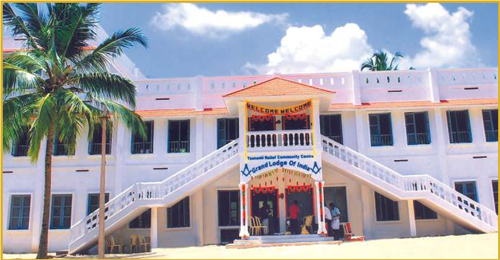
Grand Lodge of India, Tsunami Relief Community Centre, Pallam Village, Kanyakumari District, Tamil Nadu
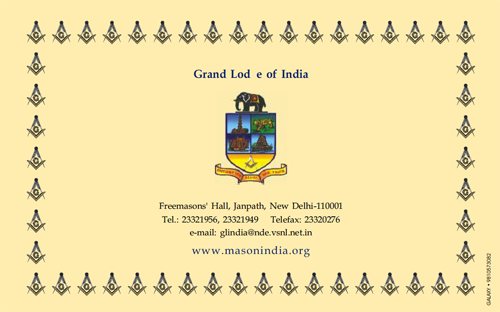
Grand Lodge of India
Freemasons' Hall, Janpath, New Delhi-110001
Tel.: 23321956, 23321949 Telefax: 23320276
e-mail: [email protected]
http://www.masonindia.org
***

